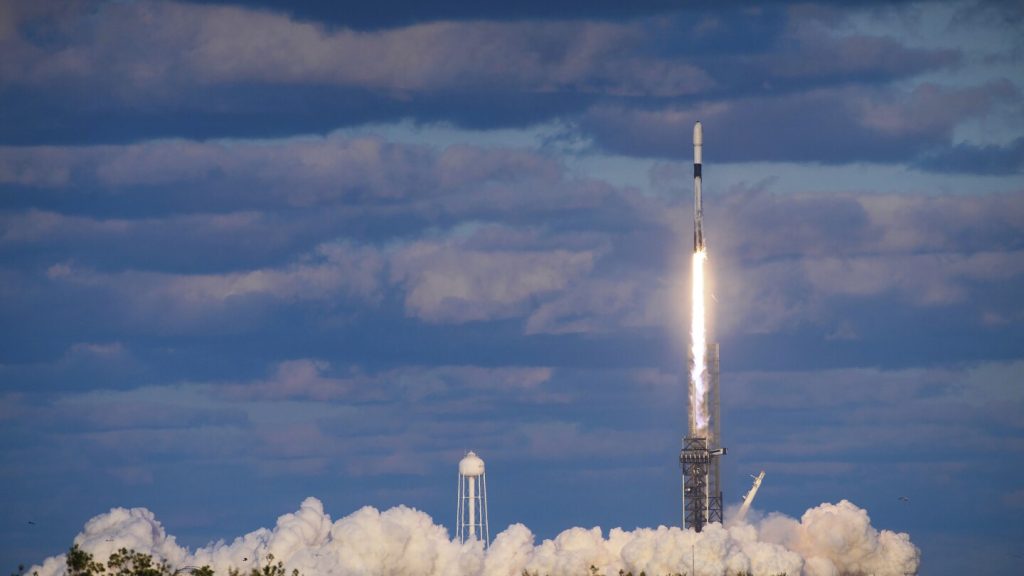South Korea has successfully launched its second military spy satellite into orbit, following North Korea’s reaffirmed plan to launch multiple reconnaissance satellites this year. The satellite was launched from the Kennedy Space Center in Florida on Sunday evening local time. The Defense Ministry confirmed that the satellite entered orbit and communicated with an overseas ground station after separation from a rocket. This launch enhances South Korea’s surveillance ability and bolsters its “kill chain” capability, according to Defense Ministry spokesperson Jeon Ha Gyu.
Under a contract with SpaceX, South Korea aims to launch five spy satellites by 2025. The country’s first spy satellite launch took place on December 1 from California’s Vandenberg Space Force Base. South Korea has also successfully launched a satellite using its own technology in 2022. Despite this achievement, experts suggest that it is more economical to use a SpaceX rocket for spy satellite launches. South Korea aims to improve the reliability of its rocket through more launches. North Korea is also working towards acquiring its own space-based surveillance network to counter perceived military threats from the U.S. and South Korea.
North Korea faced two launch failures in 2023 before successfully placing its Malligyong-1 spy satellite into orbit on November 21. The country claims that the satellite has transmitted imagery of key sites in the U.S. and South Korea, although foreign experts doubt the credibility of these claims. The North Korean government has announced plans to launch several more reconnaissance satellites in 2024. Kim Jong Un, the North Korean leader, vowed to launch three additional military spy satellites this year during a political conference in late December. This continued space activity by North Korea has raised tensions on the Korean Peninsula, with both Koreas taking steps that could potentially breach their 2018 agreement to lower military tensions.
South Korean Defense Minister Shin Wonsik commented on the likelihood of North Korea’s second spy satellite launch to mark the April 15 birthday of state founder Kim Il Sung. The U.N. prohibits North Korea from conducting satellite launches as they are seen as disguised tests of long-range missile technology. The November satellite launch by North Korea led to increased tensions in the region, prompting both Koreas to breach their agreement to reduce military tensions. In recent years, North Korea has engaged in provocative missile tests to modernize and expand its weapons arsenals, leading the U.S. and South Korea to strengthen their military drills in response. The build-up of weapons arsenals is believed to increase North Korea’s leverage in future diplomacy with the U.S.
Overall, the space activities of both South Korea and North Korea have added to the tensions on the Korean Peninsula. South Korea’s successful spy satellite launch reinforces its surveillance capabilities, while North Korea’s continued missile and satellite activities contribute to regional unease. The U.N. restrictions on North Korea’s satellite launches highlight the delicate diplomatic balance in the region, with the potential for further escalations in military tensions. The ongoing developments in space technology and missile capabilities by both Koreas underscore the need for continued monitoring and diplomacy to maintain stability in the region.


